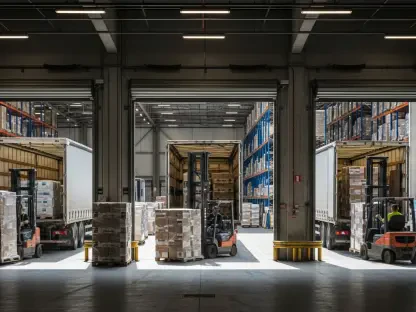Amidst a storm of legislative changes, DHL Express Canada finds itself ensnared in a complex labor dispute that reverberates across the Canadian logistics industry. With recent amendments prohibiting federally regulated employers from hiring replacement workers during strikes, DHL seeks exemptions, claiming economic stability is at risk. This scenario unfolds against a backdrop of union opposition and potential ramifications for market dynamics, creating a compelling narrative around labor rights and operational necessities.
Navigating the Shifting Landscape of Canadian Labor Laws
Canada’s labor legislation has continually evolved to better reflect societal commitments to fair worker treatment, yet businesses like DHL Express Canada now face challenges amidst these aims. The prohibition against replacement workers during labor disputes represents an intensified focus on employee rights that complicates standard industry practices. Understanding how labor laws have historically influenced the employer-employee relationship sheds light on DHL’s current predicament and highlights the complexities in balancing operational demands with worker protections.
DHL’s Service Continuity Claims: Economic and Operational Necessities
Importance of Sustained Operations in Supply Chains
DHL insists that halting its delivery operations could destabilize Canadian businesses, emphasizing its role in delivering over 50,000 international shipments daily. These shipments include crucial goods such as pharmaceuticals and e-commerce products, underscoring their significance in maintaining Canada’s supply chain continuity. While DHL highlights potential economic disruptions, the logistics industry debates the practicality of sustaining operations amid worker disputes, presenting a broader conversation about logistics providers adapting to new regulations.
Union Opposition: Protecting Collective Bargaining Rights
Unifor, representing DHL’s workers, firmly resists granting any exemptions, focusing on safeguarding collective bargaining processes. The union argues that DHL’s operations are not as critical as claimed, advocating for alternative logistical solutions during labor disruptions. Contrasting views between DHL and Unifor center around economic dependencies and labor rights, emphasizing divergent insights into fundamental logistics and negotiating dynamics.
Emerging Regional Trends in Courier Services
In this multifaceted dispute, regional differences in market operations suggest a deeper analysis is necessary. DHL’s position relative to other leading delivery firms underscores differing regional supply chain dependencies and logistic capabilities. Industry thinkers examine innovative strategies and potential misunderstandings around operational indispensability, contributing to a comprehensive discourse on adapting logistics roles during strikes.
Forecasting Future Trends and Industry Impact
The logistics sector is on the cusp of significant transformations through technological advancements and possibly new regulatory approaches, prompting shifts in labor relations, operational strategies, and industry efficiencies. DHL’s situation could instigate broader dialogues about adapting practices for impending changes. With forecasted technological shifts, the call for alignment with modern worker and consumer expectations is evident, introducing a narrative around future-proofing logistics practices.
Strategic Planning Amidst Dynamic Labor Relations
The analysis offers strategic insights for stakeholders within similar industry environments, focusing on creating adaptable labor relations and enhancing supply chain resilience. Maintaining compliance with evolving regulations is crucial for competitive advantage as industry players navigate workforce dynamics. Practical strategies are outlined to support stakeholders in building robust preparedness for looming industry challenges while ensuring operational integrity.
Implications and Strategic Insights for DHL’s Legislative Challenge
The case with DHL Express Canada and its unionized workforce encapsulates critical discussions about labor rights and logistics sector necessities. As the business navigates these negotiations amid systemic legislative overhauls, stakeholders should strive for balanced synergy between corporate priorities and worker rights. Recognizing innovative solutions within these dynamics might propel progress, facilitating strategies that concurrently advance labor relations and operational viability.









